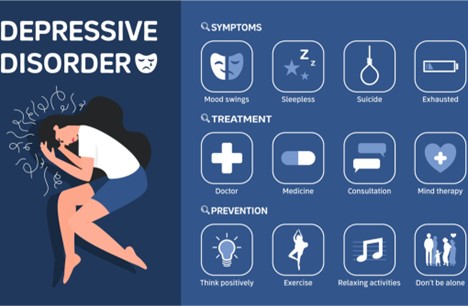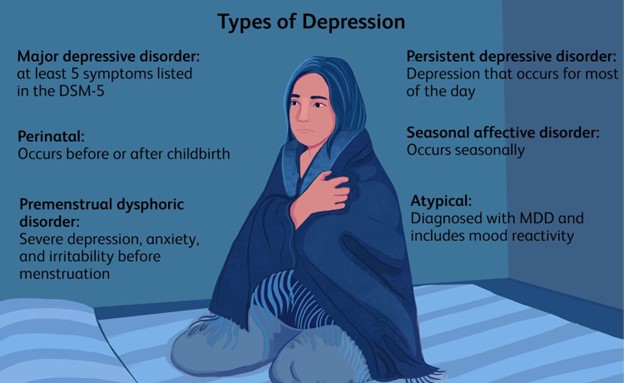Major depressive disorder (MDD)

- Major depressive disorder (MDD) is a mood disorder characterized by persistent and pervasive feelings of sadness, hopelessness, guilt, worthlessness, anhedonia (loss of interest or pleasure in activities), and low self-esteem
- MDD affects about 7% of the population in a 1-year period, with higher rates in females, young adults, and people with low socioeconomic status
- MDD is associated with significant morbidity, mortality, disability, and reduced quality of life
- The etiology of MDD is multifactorial and complex, involving biological, psychological, social, and environmental factors
.- Some of the risk factors for developing MDD include family history of mood disorders, personal history of trauma or abuse, chronic medical conditions or pain, substance use disorders, stressful life events or losses, personality traits such as neuroticism or pessimism

Nursing Test Bank
Naxlex Comprehensive Predictor Exams
Questions on Major depressive disorder (MDD)
Correct Answer is C
Explanation
Correct Answer is C
Explanation
Correct Answer is A
Explanation
Correct Answer is D
Explanation
Correct Answer is ["A","C","E"]
Explanation
Correct Answer is ["A","C","E"]
Explanation
Correct Answer is B
Explanation
Correct Answer is C
Explanation
Correct Answer is A
Explanation
Correct Answer is D
Explanation
Search Here
More on Nursing
Free Nursing Study Materials
Access to all study guides and practice questions for nursing for free.
- Free Nursing Study Trials
- Free Nursing Video tutorials
- Free Nursing Practice Tests
- Free Exam and Study Modes
- Free Nursing Revision Quizlets
